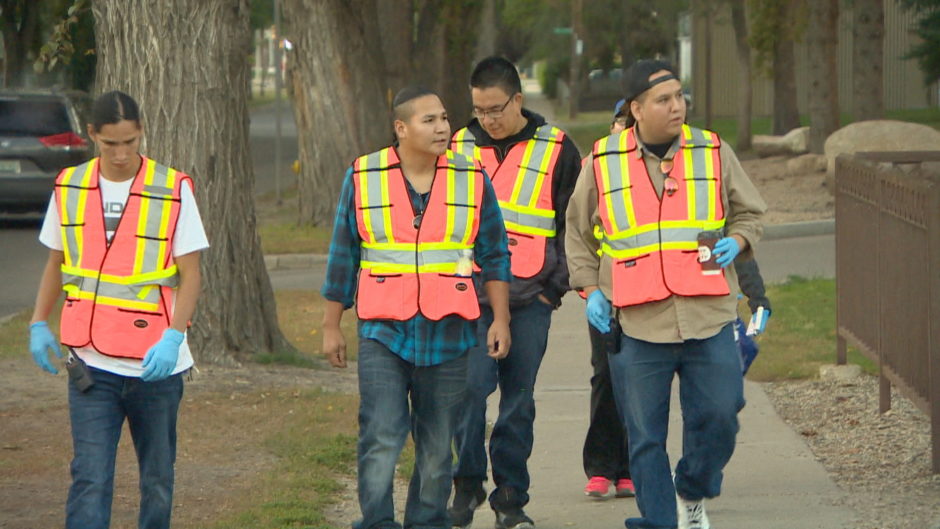October 14, 2018
The sound of singing and drumming echoed off the adjacent apartments, stopping children in a nearby park in their tracks and pulling them toward a hill at the centre of the green.
A young mother walking with her toddler turned towards the hill and found a spot to sit and watch.
The seemingly-impromptu round dance on an August evening in Saskatoon was actually part of a larger initiative by a group of volunteers working to help their community.
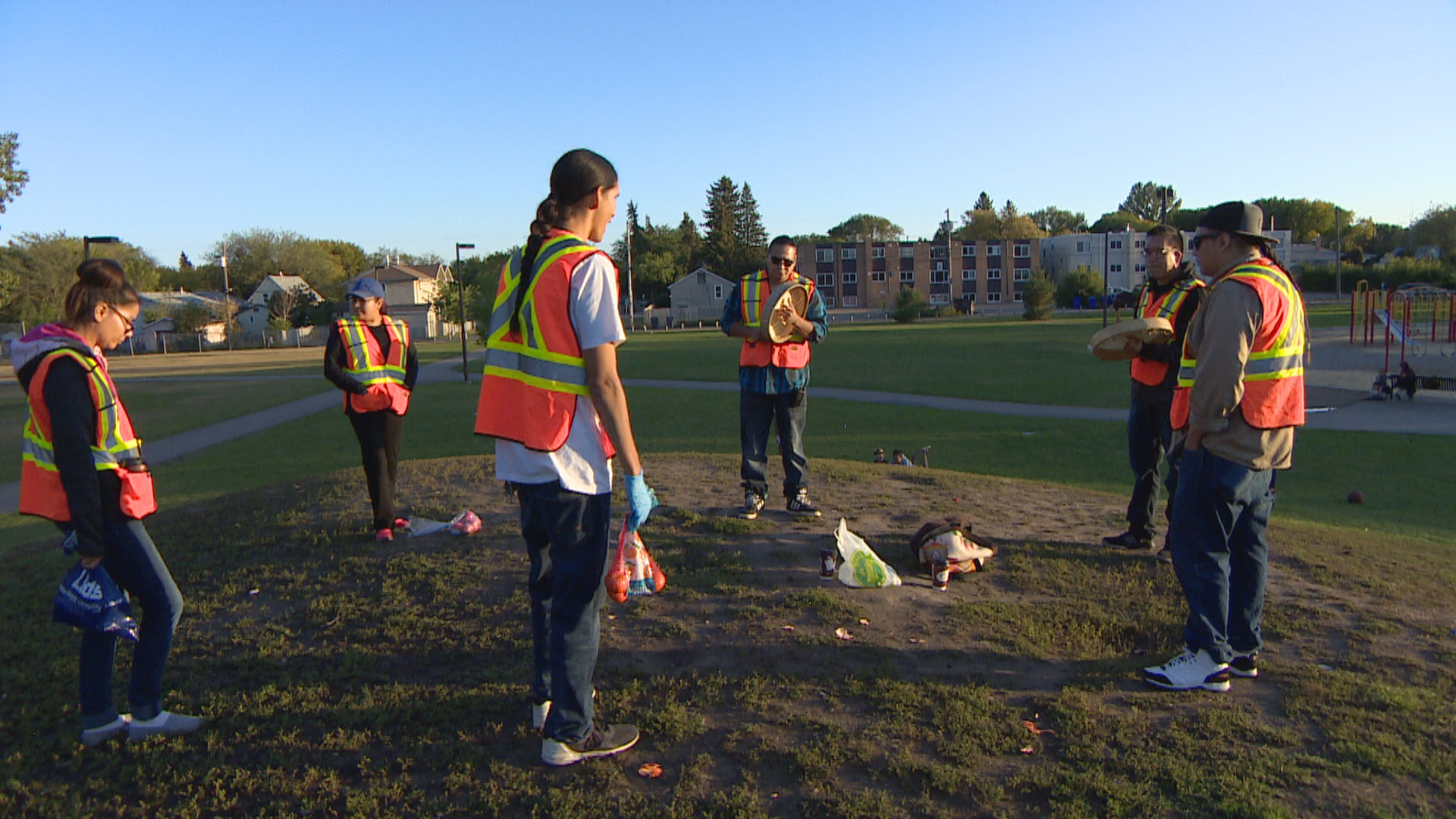
They call themselves the Okihtcitâwak (OH- kit-CHEE-taw-WAK) Patrol Group or OPG. They patrol schools and parks in Saskatoon’s inner-city Pleasant Hill neighbourhood.
“This is a neighbourhood that is considered high-risk,” says OPG founder and leader Colin Naytowhow.
“Our goal is to make people feel safe so that they can come up to us and approach us anytime if they feel in danger.”
OPG was formed this summer after members heard about a 12-year-old girl who was nearly grabbed and forced into the trunk of a vehicle. They now begin their patrols at the park where that happened.
“We got in touch with her aunt, who told us this young girl was scared to even leave the house,” says Naytowhow. "That’s when we decided we should help."
Now OPG is on the frontlines in one of Saskatoon’s toughest neighbourhood.
A large portion of Pleasant Hill's population is Indigenous. Naytowhow says components like singing round dance in the park bring a cultural aspect to the weekday patrols.
“There is a huge need for us to be out here. There is a huge need for people to take control of their communities,” says Naytowhow.
'We keep an eye out for needles'
The patrol members say it isn’t uncommon for women or children to be approached or followed by predators or prospective johns.
“See, this truck has Ontario plates! Why would someone from Ontario need to be in this area? This is the third time I seen him circle around,” Naytowhow said as a grey Dodge truck slowly passed by.
“Did anyone grab the plate?”
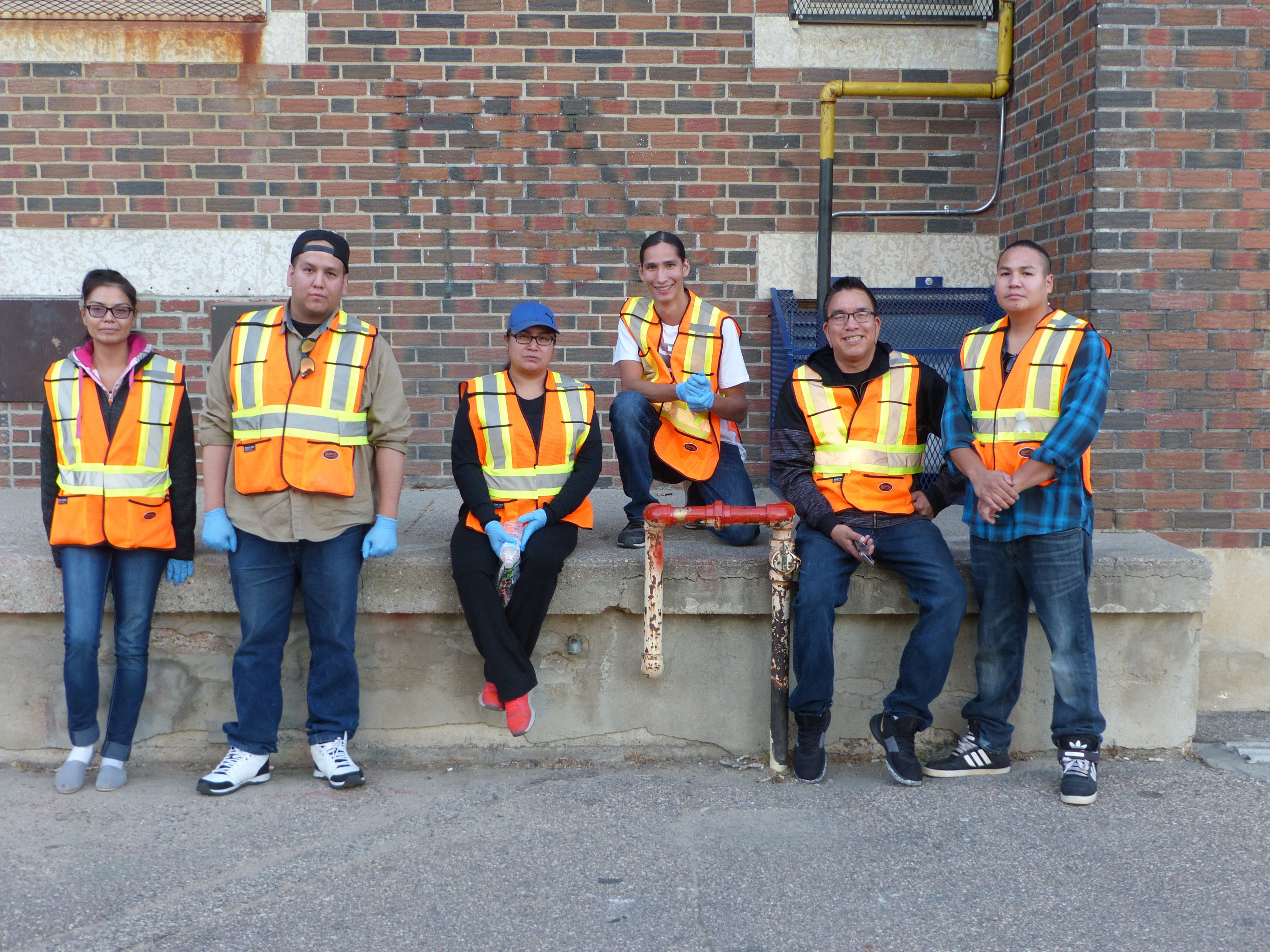
As the sun began to disappear, Naytowhow instructed volunteers on safety when gathering “sharps” or “rigs,” slang terms for injection needles.
The group of six split into pairs and began searching a playground. Their route includes two elementary schools that are in the heart of Pleasant Hill.
“We pick up anything from garbage to glass, but we keep an eye out for needles, especially in the parks,” said Lanny McDonald, the OPG's second-in-command.
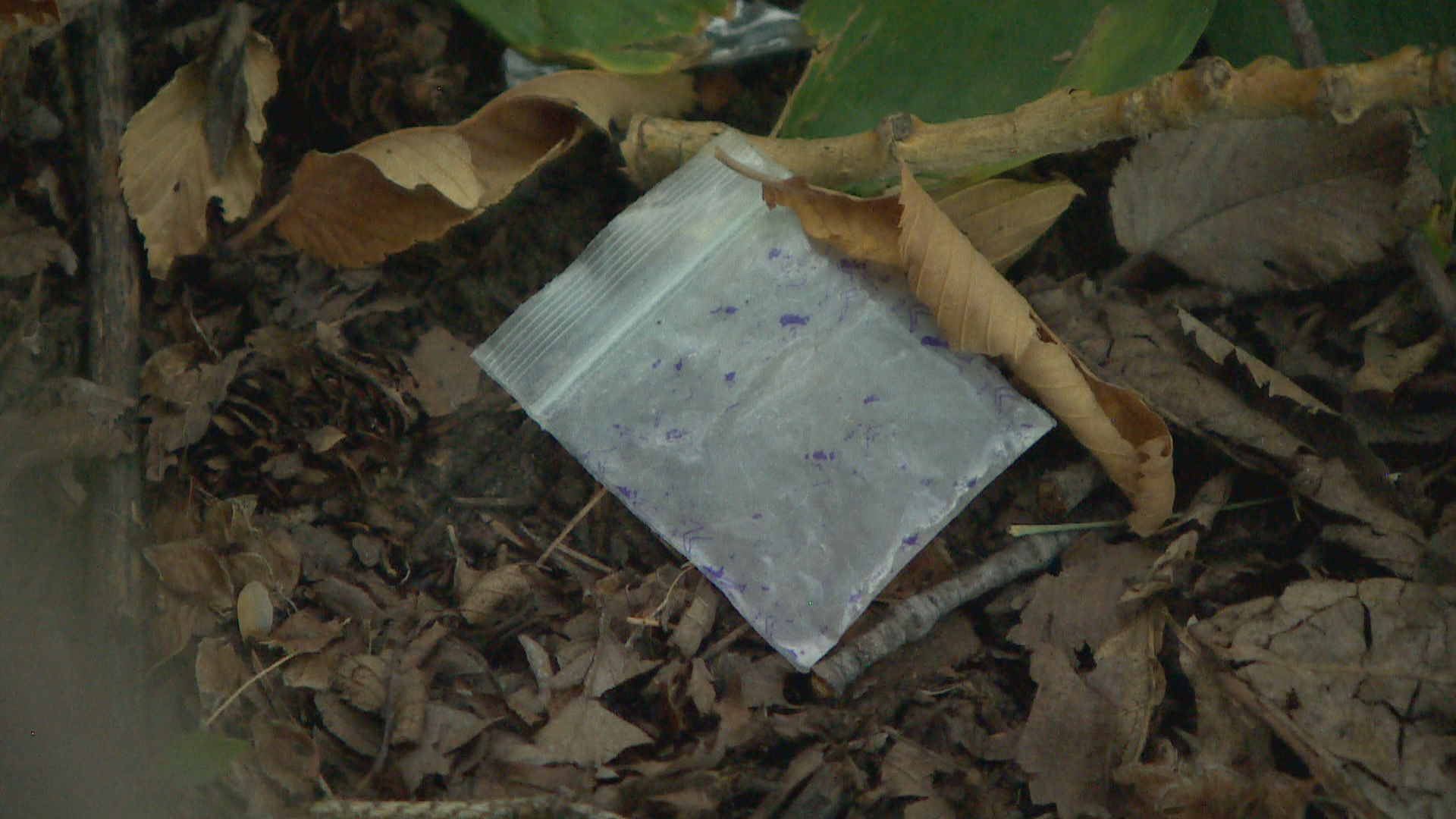
McDonald pointed out an empty baggy on the ground. He says the group usually finds several of them every patrol.
The group doesn’t have a proper biohazard container. They often use a plastic bottle as a makeshift receptacle for any needles they may find.
The next stop is FireCreek, an urban reserve gas station. The manager there often donates candy or water bottles to OPG to hand out to kids.
Along the wall of the building a couple was taking swigs from a bottle of hard liquor. Upon seeing the group, the lady slipped the bottle back into her jacket pocket.
“What are you guys the cops?” she asked.
McDonald explained what the group is doing in the community. The pair gave an approving thumbs up and joked about being arrested.
Naytowhow emerged from the gas station with a few bags of candy and the group set off on the next leg of the route.
'This is why we do what we do'
“We need the bottle over here. Found some paraphernalia and a few needles,” said Naytowhow.
Everyone gathered on the north side of a newly built school in a corner that is hidden from street view.
“It still has blood in it,” said McDonald, holding the plastic water bottle while another volunteer slides rigs into it.
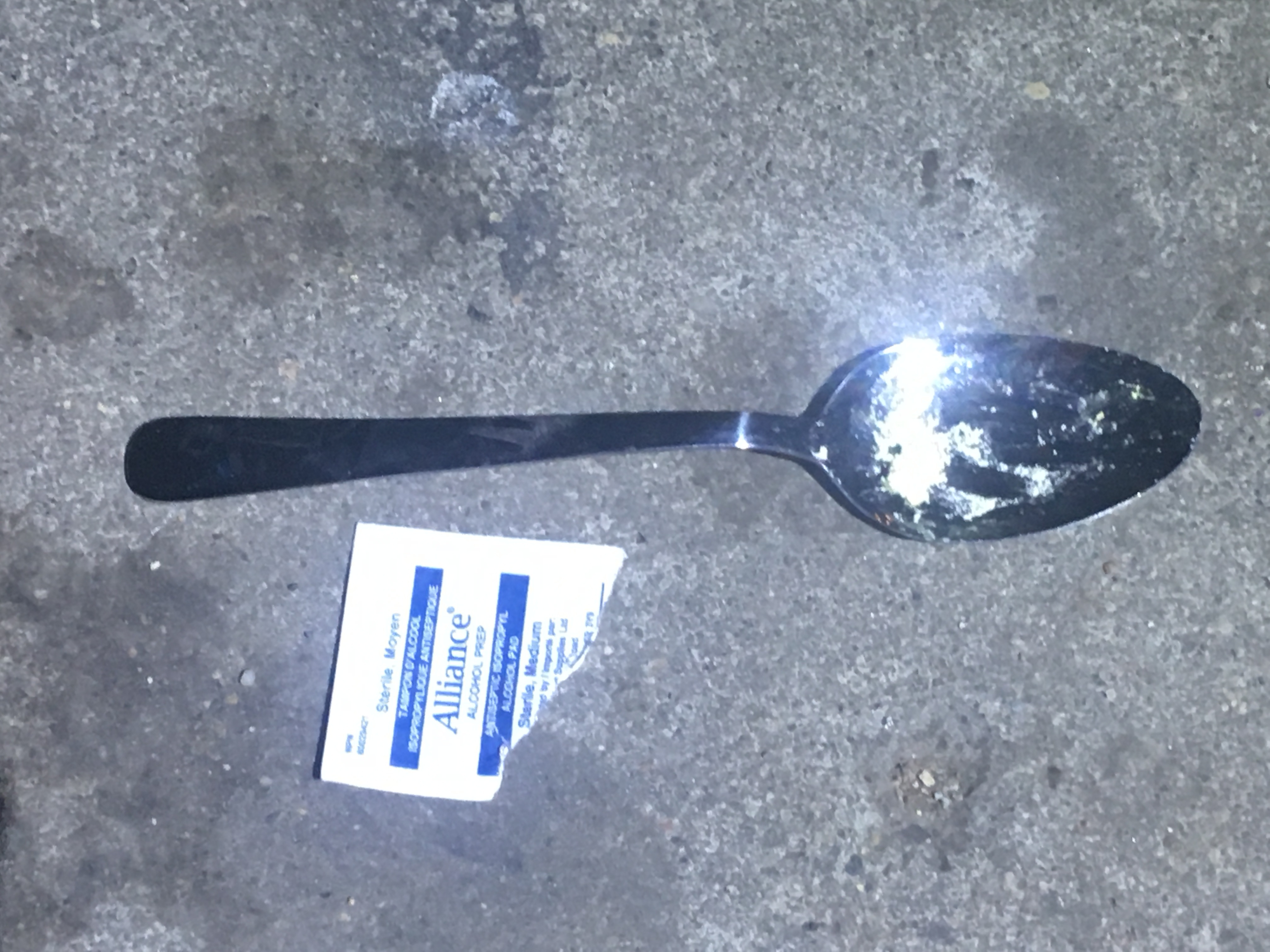
In a corner of the school yard a purse was on its side with makeup, a comb and a few feminine products scattered on the ground alongside several used needles and a spoon that appeared to still have a white substance in it.
“This is why we do what we do. Look at this. It is right at an elementary school,” said Naytowhow.
A young child without shoes approached the group, asking what they were up to. An OPG member told the boy to get some footwear and avoid any needles he comes across. The boy watched as the group finished cleaning up the area.
'There is no simple solution'
Okihtcitâwak means “warrior” in Cree.
“They were considered the warriors of the camp, monitoring the women and children, making sure the elders were taken care of, made sure the camp was kept safe,” says Naytowhow. “That’s the teaching we want to bring back. To let people know we are here to help.”
Similar patrol groups have been established in Regina and Winnipeg, initiated by people who saw drug and crime issues in their communities.
Saskatoon’s crime severity index of 115 makes it the crime severity capital of Canada, according to a 2017 Statistics Canada report.
“I think as much as any other city we do have a problem, definitely,” says Const. Derek Chesney, the cultural liaison with the Saskatoon Police Service.
"I know crystal meth is a problem as well as intravenous drugs. There is no simple solution but it is a problem definitely.”
The Saskatchewan Health Authority reported an 11 per cent increase in 2017 in the number of needles collected in their drop boxes.
Saskatoon’s needle exchange, the Saskatoon HIV/AIDS Reduction Program or SHARP, offers clean needles and supports for those using intravenous drugs.
The OPG’s patrol that night in August brought them straight there.
'Watch where you're walking'
“We found another place. It’s huge. We need to call in the fire department,” Naytowhow said over the radio. It’s something he suggests when the group is overwhelmed by the magnitude of what they find.
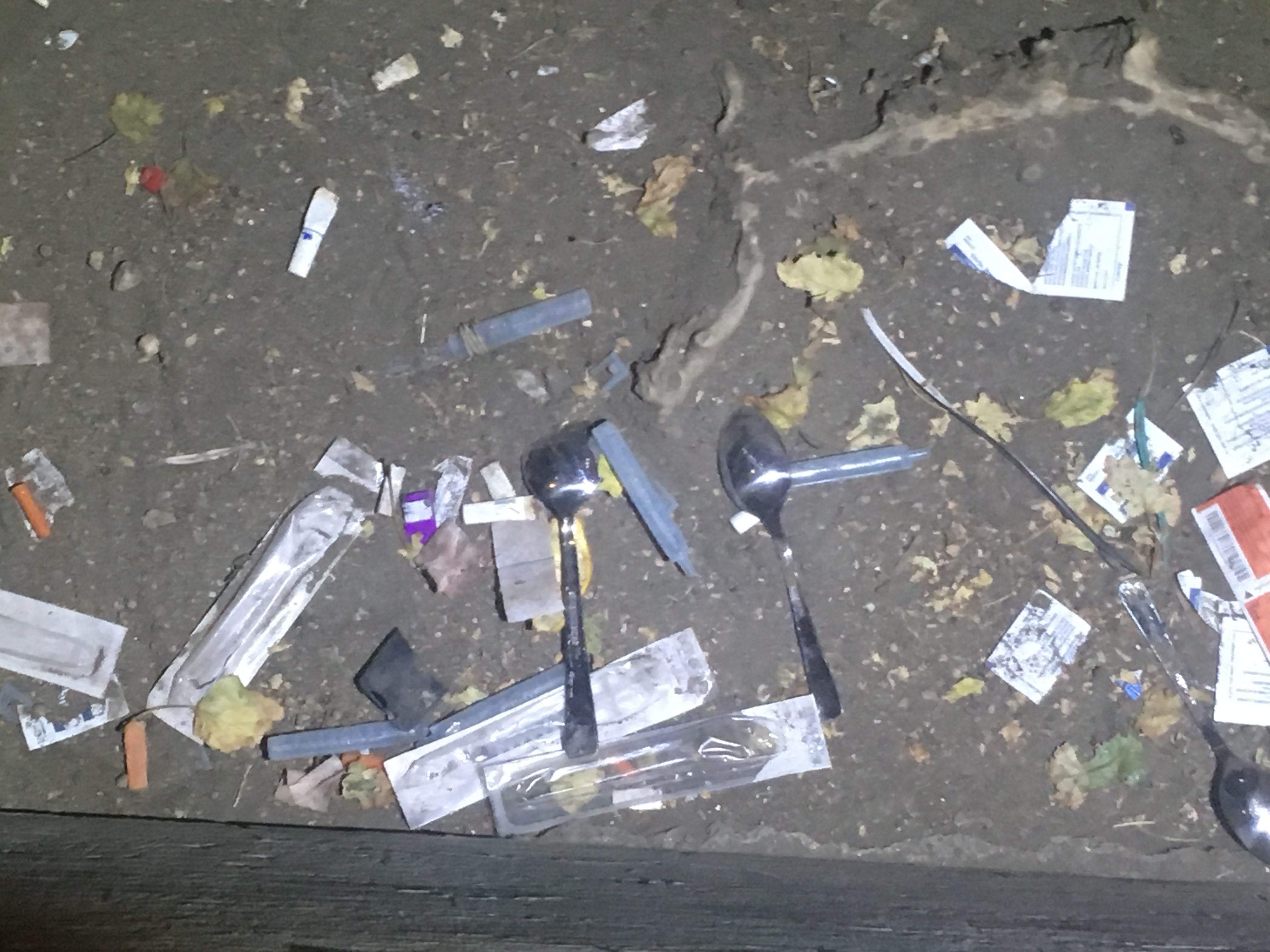
Naytowhow’s flashlight greeted OPG members as they joined him.
“Watch where you’re walking guys. They are everywhere.”
Hundreds of used needles, burnt spoons and syringe wrappers lay strewn acrossIn a backyard next door to the needle exchange.
The patrol spotted a woman. She was sitting on steps in the backyard, surrounded by several bags and a styrofoam cup with three needles in it.
“I was going to volunteer to clean this up,” the woman said, looking a bit surprised at the members of OPG with their flashlights.
She introduced herself as Monica Ermine. She visibly relaxed after she was told what the OPG does — that they aren’t police.
She has been a client at the needle exchange for years. At 40, she says she’s been a drug user for over half her life, using injection drugs daily for the last seven years.
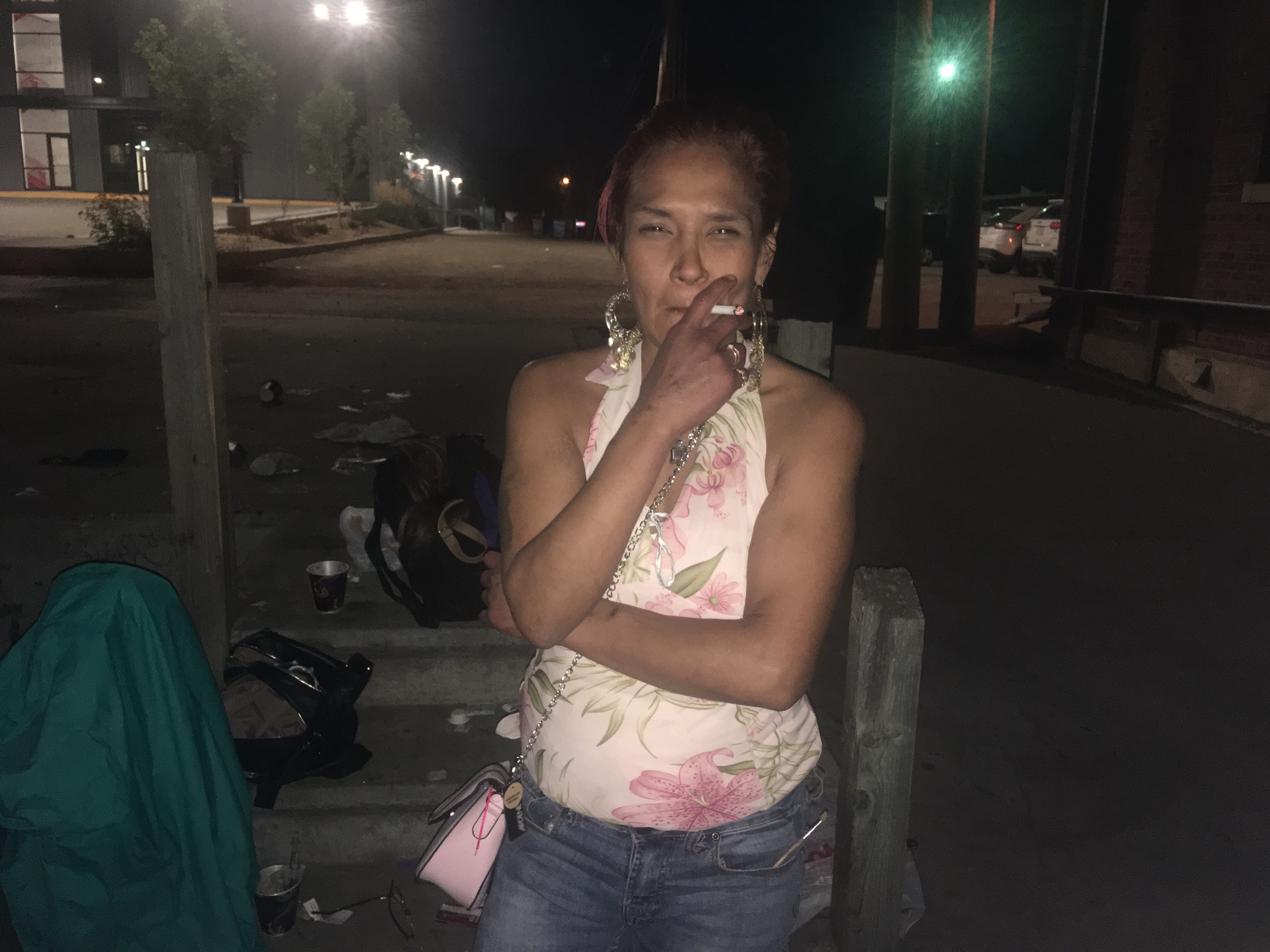
“I have been in every level of incarceration there is. Throughout my whole life I have been in and out of jail due to my addiction,” said Ermine. She took a long drag of her smoke and exhaled.
Saskatoon does not have a safe injection site.
“There needs to be more awareness to prevent this,” Ermine said, gesturing around the yard. “I think Saskatoon needs a safe injection place. It has to be somewhere safe so someone can do their dope.”
'Keep up the good work'
Saskatoon police and leaders of OPG have begun to build a relationship. The police have provided the team with training in defusing situations and taking accurate notes, as well as travelling with Naytowhow and McDonald to Winnipeg to study the procedures and methods used by a similar community patrol there.
“Our service thought that this was a good initiative that we should support, by helping them out for success and prepare them for success in anyway that we can,” says Chesney.
“Any initiative where people within a community are going to take back the responsibility of issues that are happening in their community we see as a positive.”
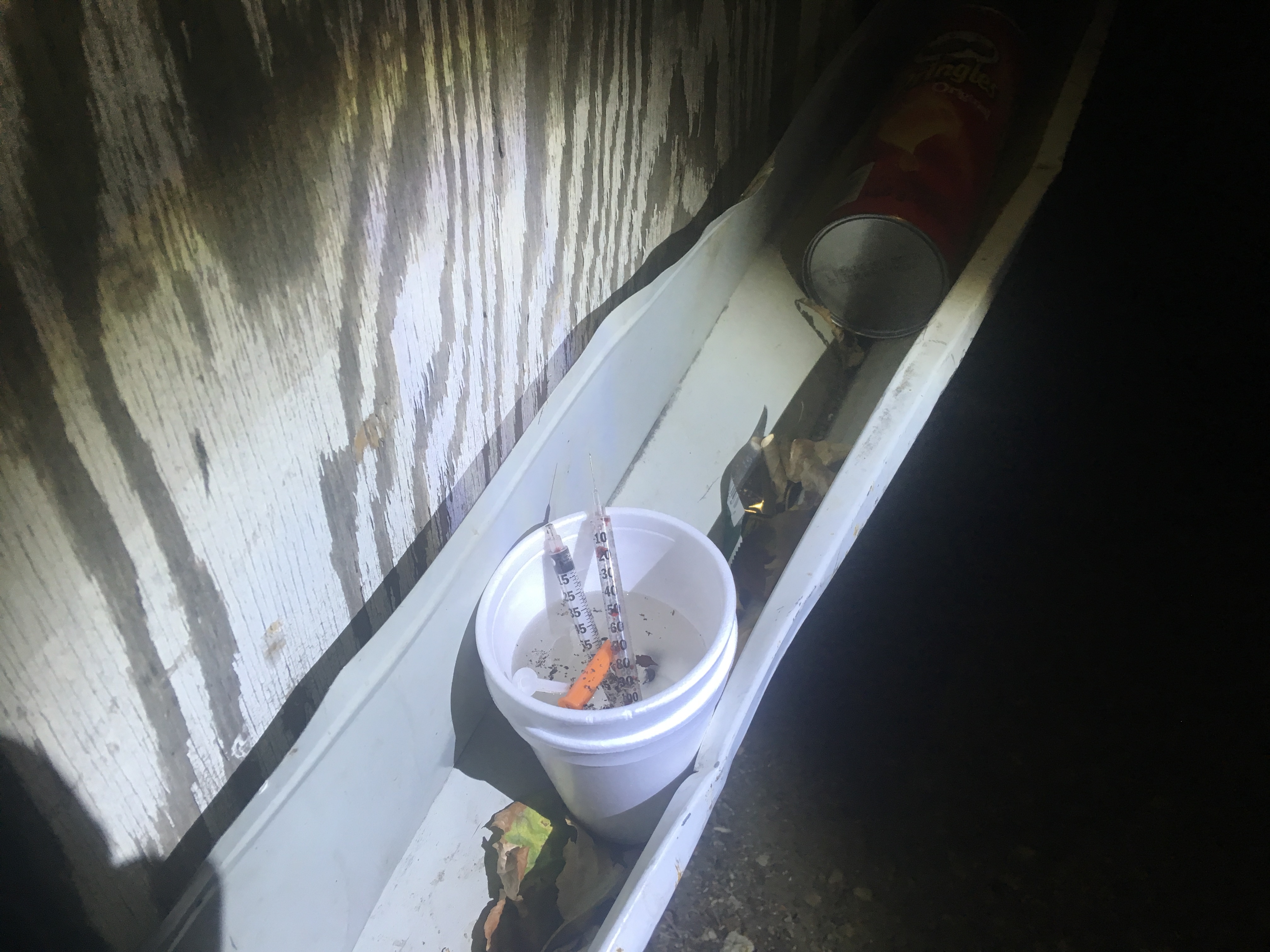
Ermine said she has done drugs for so long she can’t imagine her life without them.
She has no plans to quit.
Eventually, the fire department arrived with a biohazard container. Firefighters told the patrol the area would be taped off and that the issue would be addressed with the needle exchange and owners of the property.
Naytowhow said he and the other volunteers see situations like this every night.
Faced with the scope of the work, the OPG is always looking for more volunteers and donations.
Their work is not going unnoticed.
As Ermine prepared to leave, she hugged a volunteer. Walking down the alley toward a busy street, she turned around and waved.
“Good job, guys. Keep up the good work.”
